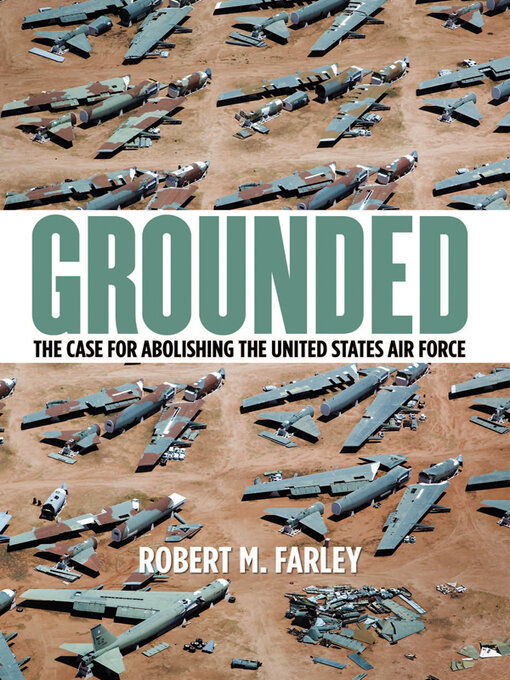The United States needs airpower, but does it need an air force? In Grounded, Robert M. Farley persuasively argues that America should end the independence of the United States Air Force (USAF) and divide its assets and missions between the United States Army and the United States Navy.
In the wake of World War I, advocates of the Air Force argued that an organizationally independent air force would render other military branches obsolete. These boosters promised clean, easy wars: airpower would destroy cities beyond the reach of the armies and would sink navies before they could reach the coast. However, as Farley demonstrates, independent air forces failed to deliver on these promises in World War II, the Korean War, the Vietnam War, the first Gulf War, the Kosovo conflict, and the War on Terror. They have also had perverse effects on foreign and security policy, as politicians have been tempted by the vision of devastating airpower to initiate otherwise ill-considered conflicts. The existence of the USAF also produces turf wars with the Navy and the Army, leading to redundant expenditures, nonsensical restrictions on equipment use, and bad tactical decisions.
Farley does not challenge the idea that aircraft represent a critical component of America's defenses; nor does he dispute that—especially now, with the introduction of unmanned aerial vehicles—airpower is necessary to modern warfare. Rather, he demonstrates that the efficient and wise use of airpower does not require the USAF as presently constituted. An intriguing scholarly polemic, Grounded employs a wide variety of primary and secondary source materials to build its case that the United States should now correct its 1947 mistake of having created an independent air force.
